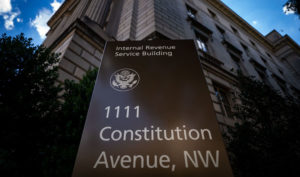
GAO report recommends a faster claims process and protection against employer retaliation.
When whistleblowers report their employers’ underpayment of taxes to the Internal Revenue Service (IRS), the rewards can be substantial. One whistleblower received $104 million from the IRS in 2012 for disclosing Swiss tax evasion schemes. But whistleblowers can also face serious backlash for revealing tax evasion secrets, including termination from their jobs and long-term unemployment.
These potential consequences prevent the IRS whistleblower program from being fully effective, according to the U.S. Government Accountability Office (GAO).
The GAO argues that Congress should protect tax whistleblowers from retaliation by employers. It also contends that the IRS should tighten up its lengthy claims process and clarify what makes a good whistleblower claim to encourage more whistleblowers to step forward. The IRS expressed openness to the GAO’s comments, stating that it plans to implement its recommendations.
The IRS Whistleblower Office, established by the Tax Relief and Health Care Act of 2006, processes thousands of tax whistleblower claims annually. These claims have helped the IRS collect almost $2 billion in additional revenue since 2011 and to chip away at the $450 billion “tax gap”—the difference between taxes owed and taxes collected.
To encourage tax whistleblowers to come forward, the IRS mandates that whistleblowers receive at least 15 percent of the proceeds collected as a result of their reports. But to some potential whistleblowers, vulnerability to employer retaliation outweighs this incentive: no federal law allows IRS whistleblowers to seek relief after being discharged, suspended, harassed, or otherwise retaliated against by their employer.
As a result, the GAO recommends that Congress consider creating a statute that permits IRS whistleblowers to receive reinstatement, back pay, or other damages in the event of employer retaliation. Such protections are present in other whistleblower programs, including those established under the False Claims Act and the Dodd-Frank Act.
According to the GAO, a lengthy claims process and murkiness as to what makes a good claim also deter potential whistleblowers from bringing claims, especially given that only five percent of whistleblower claims have closed with an award payment in the last two years.
Whistleblower claims can take five to seven years to process. Initial review is divided into three discrete steps: administrative processing, preliminary merits review, and in-depth review by subject-matter experts. No hard deadlines exist for these examination periods.
If a subject-matter expert decides that the case merits a full review, then the IRS will often launch an examination of the allegedly underpaying taxpayer. Taxpayers can appeal the result of the examination through the IRS Office of Appeals, which can take between 90 days and one year to complete, or through Tax Court, which can take even longer.
Only after appeals are complete and proceeds are collected do whistleblowers collect their awards. The award determination and payment process itself can take six months to complete.
Consequently, the GAO recommends that the Whistleblower Office consolidate its initial review and award determination processes and carefully track key dates on which the review process can move forward. The GAO claims that consolidation will not only expedite the rate of review but will also ensure that meritless claims do not advance through the review process and needlessly consume agency resources.
Whistleblowers also argue that limited communication with the IRS makes it difficult to determine what makes a good claim.
Once a claim is filed, the IRS limits communications between the IRS and the whistleblower, because the Internal Revenue Code prohibits the unauthorized disclosure of tax information. As a result, the IRS does not disclose whether it is auditing a taxpayer. It only tells whistleblowers whether their claims are open.
But the GAO states that the IRS has options to clarify what makes a good whistleblower claim.
For example, the agency argues that the IRS should take advantage of its existing regulatory authority to enter into a contract with an individual to share information for the purposes of advancing tax administration. Contracts would not only open up a line of communication, but would also provide the IRS with “free help” in analyzing complex tax issues.
The GAO further contends that the Whistleblower Office should include in its annual report to Congress basic data on processing times and reasons why claims were rejected.
Inclusion of this information would provide Congress with a better yearly “snapshot” of the whistleblower program and would allow for more improvements.



